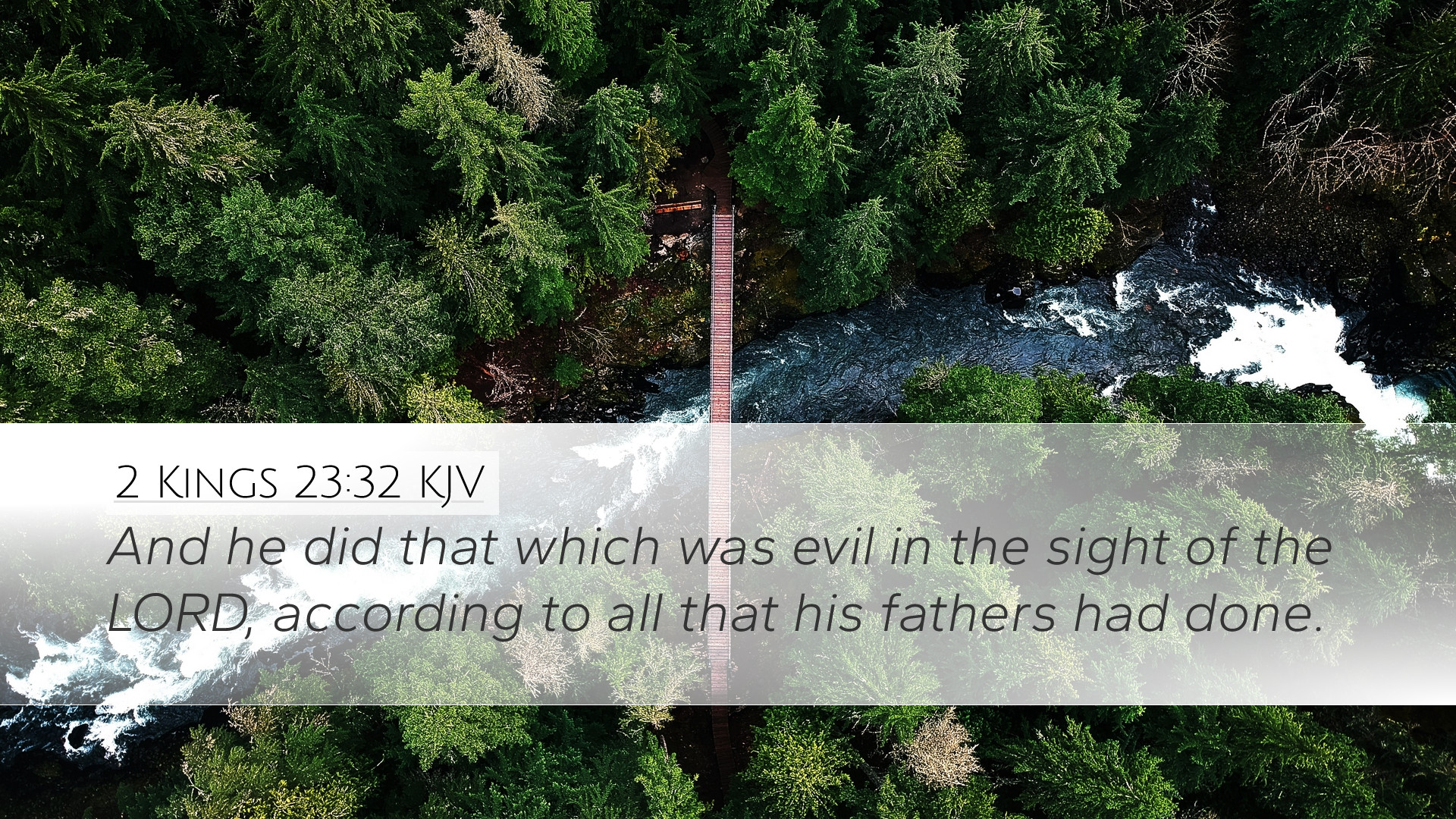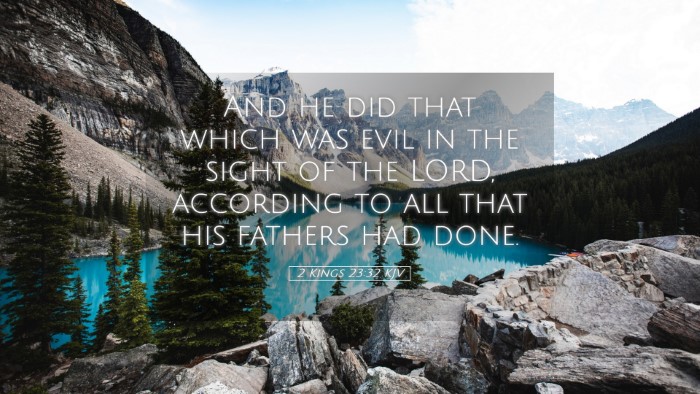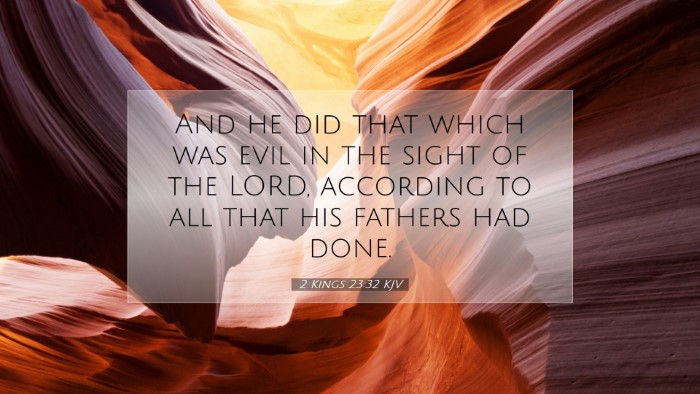Commentary on 2 Kings 23:32
2 Kings 23:32 states: "And he did that which was evil in the sight of the Lord,
according to all that his fathers had done." This verse captures a significant moment
in the history of Judah's kings, showcasing the spiritual decline that accompanied
the reign of Jehoahaz. The summary and insights below are synthesized from classic
public domain commentaries by Matthew Henry, Albert Barnes, and Adam Clarke, aimed
at providing a meaningful discourse for pastors, students, theologians, and scholars.
Contextual Background
This verse refers to Jehoahaz, son of Josiah, whose reign was shortly after his father’s
religious reforms. Despite the reforms initiated by Josiah, Jehoahaz quickly reverted
to the practices of idolatry and disobedience, leading the nation further into spiritual
decay. This commentary delves into the implications of his actions not only on the
nation of Judah but also on the theological themes present in this narrative.
The Nature of Jehoahaz's Reign
According to Matthew Henry, Jehoahaz's reign was characterized by his moral failure,
choosing to continue the sins of his forefathers. This action demonstrated a lack
of personal spiritual conviction and an inability to stand firm against the
prevailing idolatrous culture. Henry emphasizes that ruling in 'the sight of the Lord'
involves more than mere ceremonial observance; it requires genuine adherence to
God's commandments.
Adam Clarke further elaborates on the implications of Jehoahaz's choices, noting that
he fell into 'the same errors his fathers committed.' Clarke maintains that
individual leadership is crucial; the successes of previous leaders do not guarantee
faithfulness in succeeding generations. This historical lapse underscores the
need for continuous spiritual vigilance and reform to maintain fidelity to God's will.
Theological Implications
One of the primary thematic explorations of this verse is the concept of sin and
its pervasive nature in human leadership. Albert Barnes points out that Jehoahaz's
actions were not only an affront to God but also a reflection of the broader
societal issues plaguing Judah. His evil actions led to divine disfavor, setting
the stage for impending judgment. This reflects the theological principle
that leadership is fundamentally about moral integrity and accountability before
God.
Historical Consequences
The ramifications of Jehoahaz's actions were immediate and dire. As pointed out by
both Henry and Clarke, his brief rule resulted in a swift judgment upon Judah.
Henry covers the historical fallout, suggesting that Jehoahaz's unfaithfulness opened
the door to foreign invasions and further catastrophe. The verse serves as a stark
reminder that the failure of leadership can guide a nation toward ruin.
Lessons for Contemporary Leadership
For pastors and spiritual leaders today, 2 Kings 23:32 offers a profound opportunity
for reflection on the consequences of moral failure in leadership. Clarke suggests
that this passage challenges leaders to consider the legacy they are establishing.
Are they construing faithfulness in the light of their predecessors, or are they carving
out a new path aligned with divine principles? The call is for leaders to root their
practices and beliefs in Scripture, seeking not only to honor God with their lips
but also to uphold His ways in action.
Further, Barnes notes the importance of the community's role in the spiritual health
of a nation. Leaders greatly influence public sentiment; therefore, they must
cultivate a collective spirituality rooted in sincere worship and adherence to
God's commands. This calls not only for individual integrity but also a communal
responsibility to uphold righteousness.
Conclusion
2 Kings 23:32 serves as a poignant reflection on the nature of leadership within
a covenant community. The historical account of Jehoahaz encapsulates the repeated
cycle of sin and judgment that underscores the narrative arc of the Old Testament.
By examining his reign through the lens of public domain commentary, leaders
today are reminded of the imperative to remain steadfast in righteousness,
hold each other accountable, and guide their communities toward a more profound
devotion to God. The essence of leadership—both in the historical context and
contemporary application—lies in the faithful acknowledgment of God’s sovereignty
and obedience to His Word.


